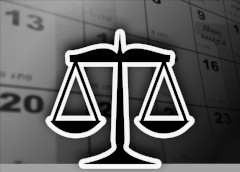Unjust verdict against Wat Bo Community Representative
Published on 25 October 2007The Cambodian League for the Promotion and Defense of Human Rights (LICADHO) deplores the prison sentence given this week to a community representative involved in a long-running land dispute in Siem Reap.
Despite an overwhelmingly lack of evidence against her, 24-year-old So Socheat was convicted in the Siem Reap Provincial Court on October 22 of committing battery with injury and destruction of private property. Judge Kun Sokhal sentenced her to eight months in prison and a 500,000 riel (US$125) fine.
Although Socheat was accused of assaulting a police officer, the only evidence of battery with injury presented to the court was the opposite - that police officers had in fact beaten Socheat.
“This is yet another case of the law being misused to punish and intimidate innocent people who try to help their communities to protect their land,” said LICADHO president Kek Galabru. “It highlights how the victims are turned into criminals by Cambodia’s ‘justice’ system.”
So Socheat was arrested on May 3, 2006 when police and military police violently dispersed a peaceful land protest at Wat Bo village in Siem Reap town. Protesting villagers, mostly women, were beaten and shocked with electric batons by the police. So Socheat, one of four villagers nominated as community representatives to negotiate in a land dispute with the chief monk of Wat Bo, was arrested by police. Unable to walk from being beaten on her legs, she was carried away by police officers to jail. She spent a night there before released on bail the next day.
So Socheat was charged with battery with injury in relation to a complaint by a policeman that villagers grabbed and pulled his testicles during the incident. The property destruction charge related to the same policeman’s ICOM radio, which was allegedly broken when it fell to the ground around the same time.
At the trial, policeman Yoeum Odum testified that several villagers had pulled his testicles and snatched at his ICOM radio - but he specifically stated that So Socheat was not one of them. No medical certificate or other evidence was presented to the court that any injury had been suffered by Yoeum Odum. Similarly, the damaged ICOM radio was not shown to the court.
Judge Khorn Sokal accepted that So Socheat had not been the one who manhandled the policeman, but stated that because she was the “ring leader” of the protesters, she had to be responsible for what other villagers had done.
Defense witnesses testified that they did not see So Socheat using violence against the authorities, and it was the police who beat her. A medical certificate detailing So Socheat’s injuries was also presented to the court.
Deputy District police chief Touch Bun Thoeun, also present at the hearing, denied that his men had beaten or given electric shocks to So Socheat (or anyone else), and claimed she suffered her injuries when she fell into a hole. Despite the policeman’s denial, the prosecutor stated, in his final conclusions to the court, that the fact that the police did give electric shocks to So Socheat was proof that she had been acting wrongfully.
“The verdict in this case highlights once more the lack of independence of the judicial system in cases brought to court by the police,” said Kek Galabru. “There simply was no evidence against So Socheat presented by the police, yet the court still convicted her.” So Socheat, who was bail prior to her trial, remains free pending an Appeal Court hearing on her appeal against the verdict.
LICADHO hopes that the Appeal Court will deliver justice to So Socheat by ruling strictly according to the evidence presented. LICADHO also urges the Cambodian government to instruct Siem Reap provincial authorities to find a speedy and fair resolution to the Wat Bo land dispute which respects the land rights of villagers involved.
The chief monk of Wat Bo, supported by powerful officials including Buddhist Supreme Patriarch Tep Vong, has been attempting to evict about 50 families living nearby the pagoda. The chief monk has produced documents dated in 1995 to claim the villagers’ land, but the families say they have lived there for decades, and they have land titles given to them in 1990.
For more information, please contact:
▪ Am Sam Ath LICADHO Technical Supervisor 012 327 770
▪ Mathieu Pellerin LICADHO Consultant 012 426 787
PDF: Download full statement in English - Download full statement in Khmer






